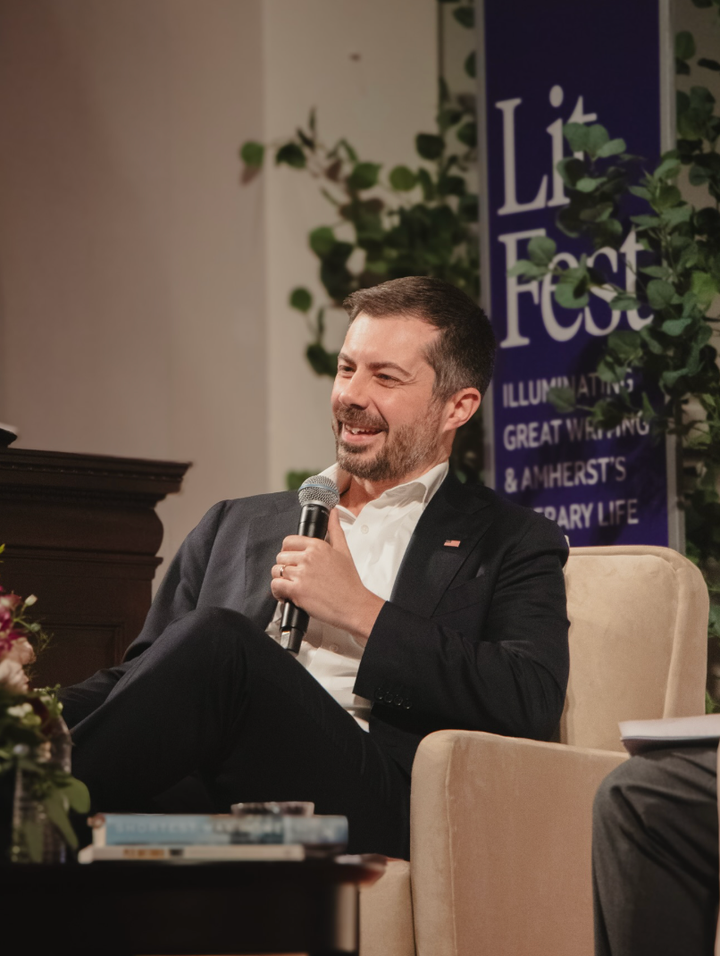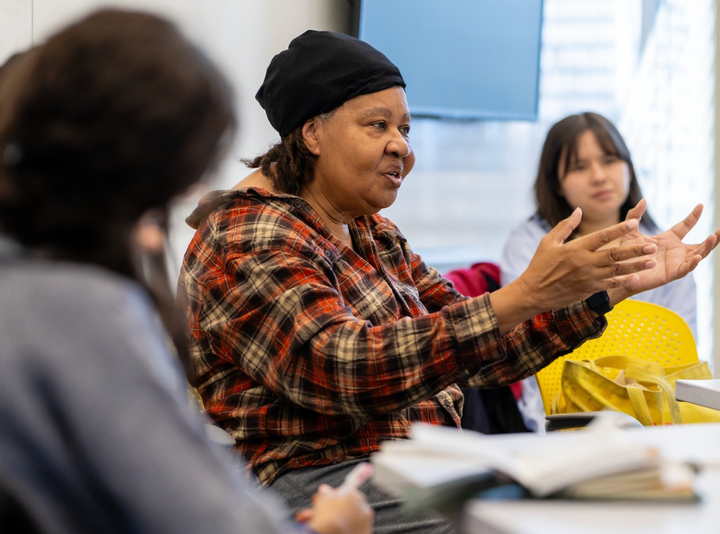ASO’s “Profiles in Courage” Continues with MLK Tribute
The Amherst Symphony Orchestra played their second show of the semester this weekend, memorializing Dr. Martin Luther King, Jr. as part of their “Profiles in Courage” series. Contributing Writing Mila Massaki Gomes ’27 recaps the performance.
Students and parents packed Buckley Recital Hall during Family Weekend for Amherst Symphony Orchestra (ASO)’s second performance of the semester on Saturday, Oct. 23. ASO continued its theme of “Profiles in Courage” with a selection of pieces honoring civil rights leader Martin Luther King Jr. Featuring two guest performers, the orchestra played four complementary pieces from the 20th century, ranging from jazz to classical, and provided the audience with a sampling of the many shapes American music can take.
Senior Lecturer in Music and Director of Instrumental Music Mark Swanson welcomed the audience with an introduction to the concert theme. He explained that the concept of “Profiles in Courage” was commissioned and inspired by the Class of ’64, who were at the college to witness President John F. Kennedy deliver the inaugural speech for Frost Library shortly before his assassination.
The performance opened with “Three Black Kings” by Duke Ellington and featured Professor of Music Jason Robinson as a saxophone soloist. The piece, which many describe as the essence of jazz, brought a new and refreshing sound to anyone who thought an orchestra was constrained to playing classical music. Robinson’s rich saxophone melodies in “Three Black Kings” kicked off the night on a high note.
The second piece shifted the performance away from the upbeat jazz to a more sorrowful and melancholic tone. “Lyric for Strings” by George Walter is a “tribute piece,” explained Swanson. The piece, written in memory of Walter’s grandmother, was a way the musician expressed his grief and pain at the loss of an important figure in his life. In the performance, Swanson explained that “Lyric for Strings” was incorporated as a note to the feelings of hopelessness that came with MLK’s assassination.
Before intermission, the orchestra performed “I Have a Dream,” by Lee Hoiby and overlaid with the words of King. The show-stopping piece featured a guest soloist, baritone Brian Keith Johnson. Every word Johnson sang reminded the audience that our actions live on even after death. As the piece ended, which portrayed a cycle of life, death, and legacy through music, the recital hall filled with applause from every audience member, and the orchestra received a standing ovation.
The concert ended by embracing ASO’s additional theme of the year, “Second Symphonies,” with Howard Hanson’s “Symphony No. 2 in D-Flat Major, Op. 30.” It closed the night by sweeping the audience into the romance of 19th century classical music with beautifully sweet melodies and emotion in every note. The night concluded with another standing ovation, and I left excited for ASO’s next performance.




Comments ()